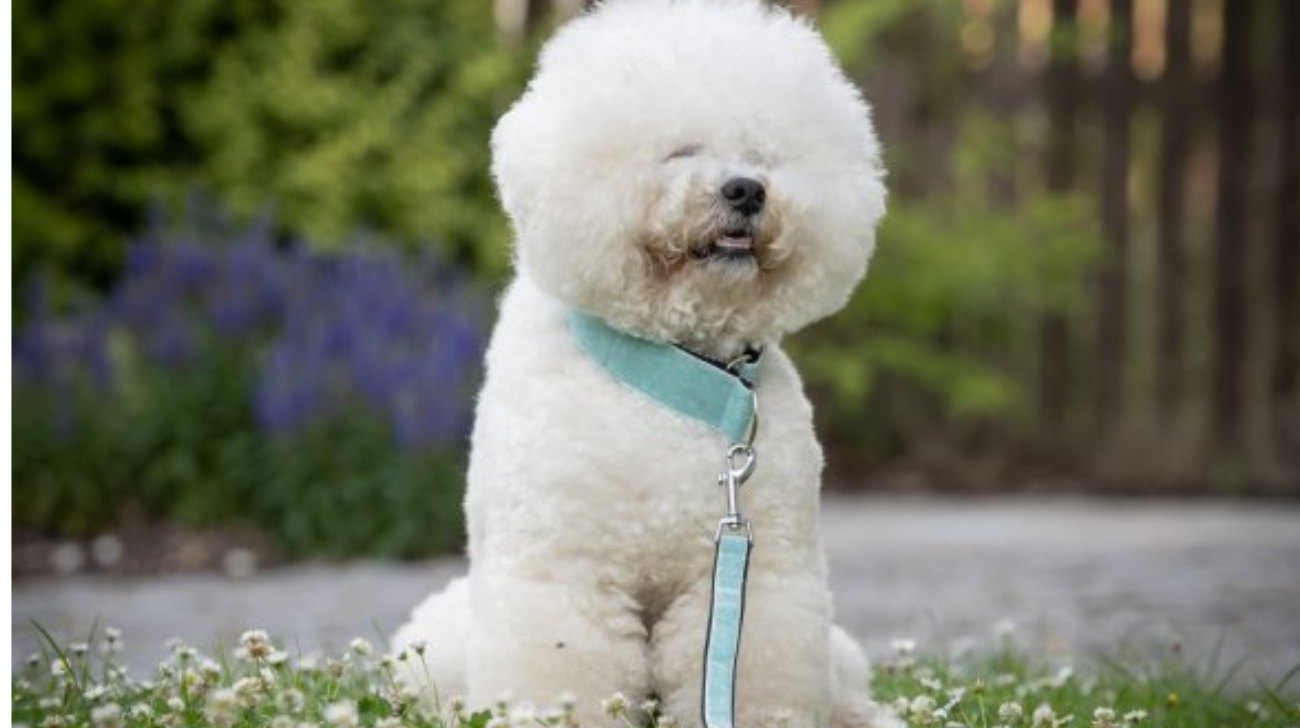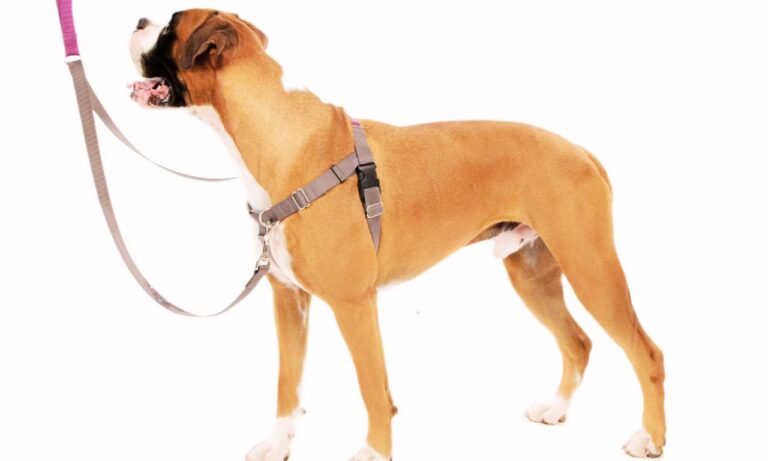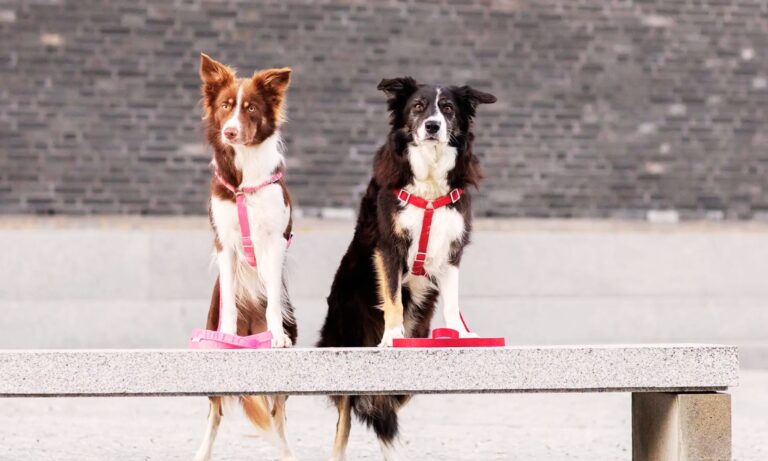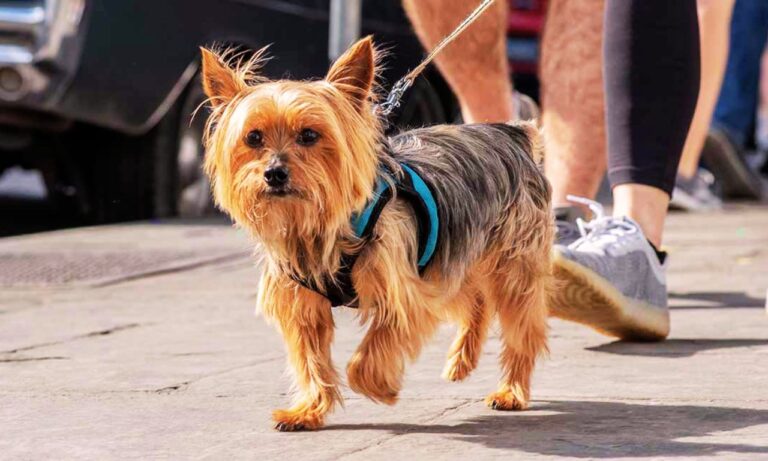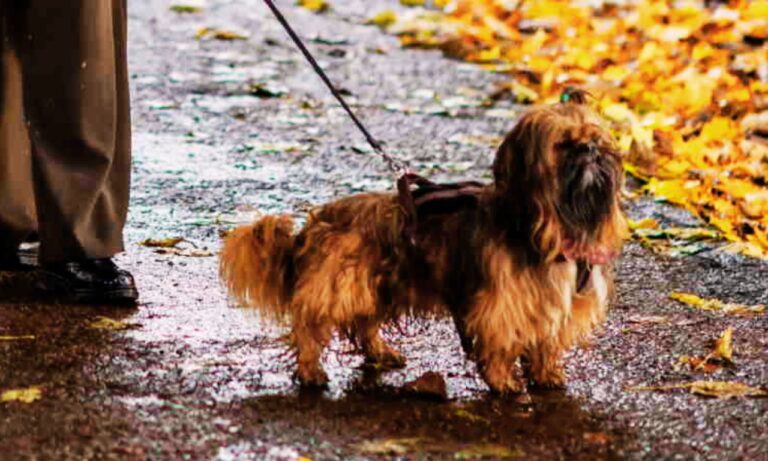Selecting the right collar for your Bichon Frise is more than just a matter of style; it’s essential for their comfort and safety. Known for their cheerful disposition and hypoallergenic coats, Bichons are a beloved breed. However, ensuring a proper fit is crucial to avoid discomfort or injury. So, What size collar for a Bichon?
I will explore how to measure your Bichon, choose the appropriate collar size, discuss various types of collars, and review the best materials for your furry friend. Understand if the Cane Corso is a high-maintenance dog with this insightful guide.
Here’s an overview for you:
Additional Tips:
- Check Fit: Ensure you can fit two fingers comfortably between the collar and your Bichon’s neck.
- Adjust for Growth: Regularly check and adjust the collar as your Bichon grows, especially if they are a puppy.
Blog Highlights
ToggleWhat Size Collar for a Bichon?
So, What size collar for a Bichon? When choosing a collar for a Bichon, measure their neck and select a size that fits snugly but comfortably, typically between 12 to 14 inches for most adults. These small dogs typically weigh between 10 to 20 pounds and stand about 9.5 to 11.5 inches tall at the shoulder.
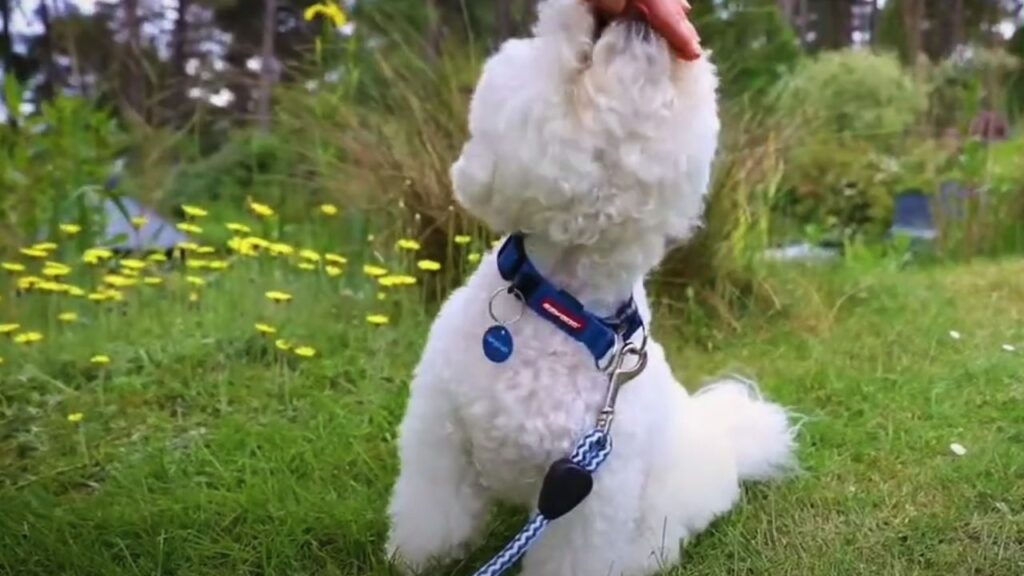
They are characterized by their fluffy white coats, lively personalities, and playful nature. Because of their small size and delicate necks, choosing the right collar is particularly important for Bichons. An ill-fitting collar can lead to discomfort and potential health issues.
How to Measure Your Bichon for a Collar?
Measuring your Bichon accurately is the first step in finding the perfect collar. Follow these steps to ensure an accurate measurement:
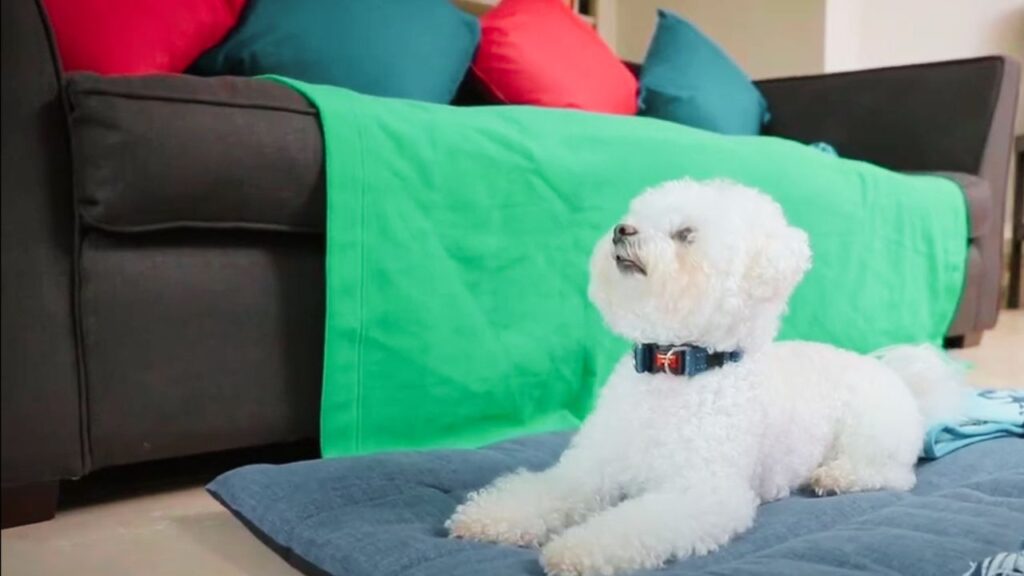
Step 1: Gather Your Supplies
You will need:
- A flexible measuring tape (or a piece of string and a ruler)
- Treats to keep your Bichon calm and cooperative
Step 2: Measure the Neck
- Position the Tape: Place the measuring tape around the base of your Bichon’s neck, ensuring it sits comfortably. It should rest just below their ears.
- Check the Measurement: Take note of the measurement in inches. It’s a good idea to measure twice for accuracy.
Step 3: Account for Comfort
When determining the collar size, add a little extra length for comfort. A general rule is to add 1 to 2 inches to the neck measurement. This extra space allows for comfortable movement without causing irritation or choking. Discover the best collars for short-haired dogs with these 6 top recommendations.
Example Measurement
If your Bichon’s neck measures 12 inches, look for a collar that is between 13 to 14 inches in length.
Choosing the Right Collar Size
With the measurements taken, it’s time to choose the appropriate collar size. Most collars come in specific sizes categorized as small, medium, and large. Here’s a general size guide based on neck measurements:
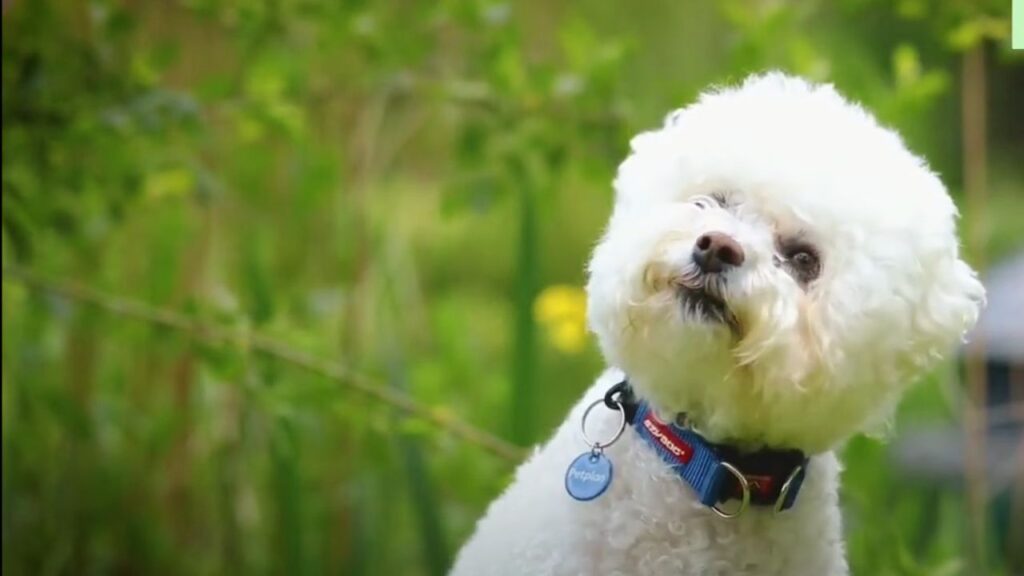
- Small Collars (10-12 inches): Ideal for puppies or smaller Bichons.
- Medium Collars (12-14 inches): Suitable for most adult Bichons.
- Large Collars (14-16 inches): For larger Bichons or those with thicker necks.
Checking the Fit
After selecting a collar, it’s important to verify the fit. You should be able to fit two fingers comfortably between the collar and your Bichon’s neck. If you can fit more than two fingers or if the collar feels too tight, you should consider adjusting or selecting a different size.
Types of Collars for Bichons
Different collar types serve various purposes and provide unique benefits. Consider the lifestyle and personality of your Bichon when selecting the right collar.
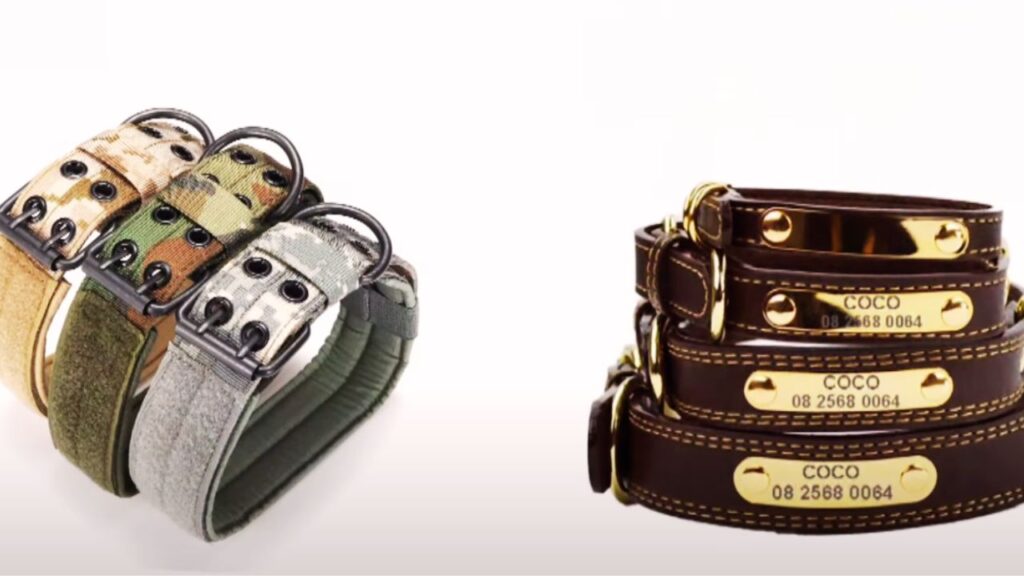
1. Flat Collars
Flat collars are the most common type and are perfect for everyday use. They are usually made of nylon or leather and come in various colors and designs. Here are some key points to consider:
- Pros: Lightweight, versatile, and widely available in a range of styles.
- Cons: If not fitted correctly, they can cause friction or irritation.
2. Martingale Collars
Martingale collars are designed for training purposes and offer additional control. They tighten slightly when your Bichon pulls, preventing them from escaping. This collar type is ideal for Bichons still learning to walk on a leash.
- Pros: Provides better control without choking the dog.
- Cons: Requires careful fitting to avoid discomfort.
3. Harnesses
While not technically a collar, harnesses can be a great alternative, especially for Bichons prone to neck injuries or respiratory issues. Harnesses distribute pressure evenly across the chest and are available in various styles.
- Pros: Reduces strain on the neck and can be more comfortable for active dogs.
- Cons: Can be more cumbersome to put on and take off.
4. Breakaway Collars
Breakaway collars are designed to snap open if your Bichon gets caught on something, making them a safer option during playtime or outdoor activities.
- Pros: Provides safety in case of entanglement.
- Cons: May not be suitable for leash training.
Signs of an Improperly Fitting Collar
An improperly fitting collar can lead to discomfort or even injury. Be aware of the following signs that indicate your Bichon’s collar may not fit properly:
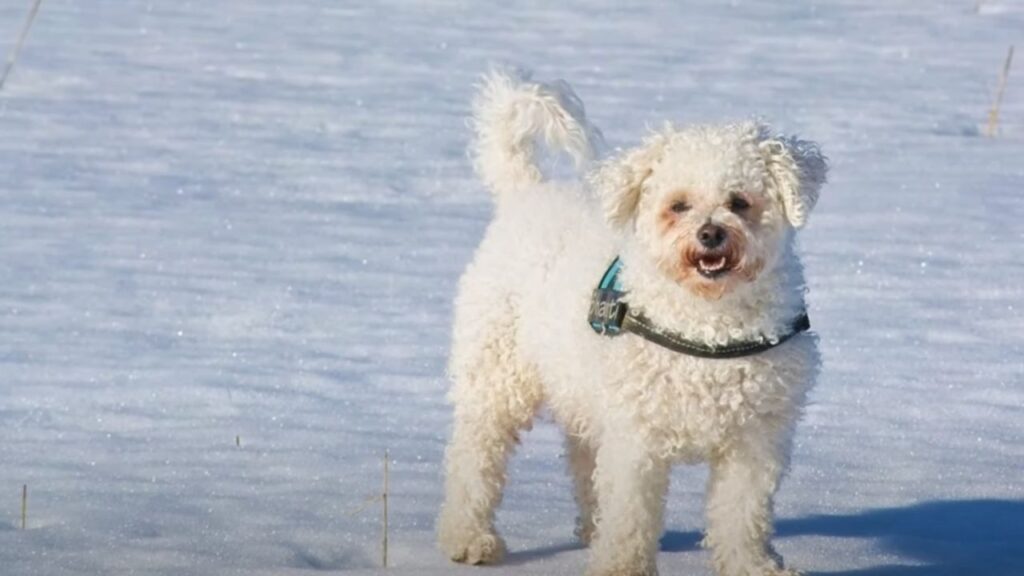
1. Choking or Coughing
If your Bichon coughs or chokes when wearing the collar, it may be too tight. Adjust the collar or choose a larger size to ensure their airway remains clear.
2. Skin Irritation
Look for redness, rashes, or irritation under the collar. If you notice these symptoms, it’s essential to remove the collar immediately and reassess the fit and material. Learn if it’s bad to leave a dog’s collar on all the time and how to ensure your pet’s comfort.
3. Escaping
If your Bichon is frequently slipping out of their collar, it’s too loose. Adjust the collar or opt for a smaller size to prevent escapes, especially in areas with potential hazards.
Tips for Training Your Bichon with a Collar
Once you have the right collar, you may need to train your Bichon to get used to wearing it. Here are some tips to make this process smoother:
1. Start Slowly
Introduce the collar gradually. Allow your Bichon to sniff and explore the collar before putting it on. Once they seem comfortable, gently fasten it around their neck.
2. Positive Reinforcement
Use treats and praise to encourage your Bichon while they wear the collar. This helps create positive associations with the collar.
3. Short Sessions
Begin with short periods of wearing the collar. Gradually increase the time as your Bichon becomes more accustomed to it. Find out whether collars are bad for a dog’s neck and fur and how to avoid common issues.
Exploring Collar Accessories for Bichons
While choosing the right collar is essential, don’t forget that various accessories can enhance both the functionality and style of your Bichon’s collar. Accessories not only serve practical purposes but also allow you to express your Bichon’s personality. Let’s delve into some popular collar accessories and how they can benefit you and your furry friend. Determine the ideal collar size for a Bernese Mountain Dog with this guide.
1. ID Tags
One of the most important accessories for any collar is an ID tag. These tags can be engraved with your Bichon’s name and your contact information, providing a quick way for someone to reach you if your pet gets lost. Here are a few considerations when selecting ID tags:
- Material: Choose durable materials like stainless steel or brass to ensure longevity. Lightweight options are best for small breeds like Bichons.
- Design: Opt for a tag that complements your Bichon’s collar. Many tags come in various shapes and colors, allowing for personalization.
- Legibility: Ensure the engraving is clear and easy to read. In emergency situations, legibility can make all the difference.
2. Reflective Collars
For those who enjoy evening walks or live in areas with low lighting, reflective collars can be a valuable accessory. These collars are designed with reflective materials that enhance visibility in low-light conditions, keeping your Bichon safe. Here’s why reflective collars are beneficial:
- Increased Safety: Reflective collars can help ensure that drivers and pedestrians can see your Bichon in the dark, reducing the risk of accidents.
- Enhanced Visibility: Look for collars that have reflective stitching or panels for optimal visibility.
3. Collar Covers
Collar covers are decorative accessories that can be placed over a standard collar to add a touch of flair. These covers come in various colors and patterns, allowing you to customize your Bichon’s look for special occasions or everyday wear. Some benefits of collar covers include:
- Style Options: Switch up your Bichon’s style easily by changing the cover according to seasons, holidays, or events.
- Comfort: Some collar covers are padded, providing additional comfort for your Bichon.
4. Personalized Collars
Personalized collars have become increasingly popular among pet owners. These collars often include your pet’s name or a special phrase stitched directly onto the collar. Here are a few reasons to consider a personalized collar:
- Identity: A personalized collar can help identify your Bichon quickly, especially in settings like dog parks where multiple dogs are present.
- Sentimental Value: A collar featuring your pet’s name can add a sentimental touch, making it a cherished accessory.
5. Training and Behavior Accessories
For those who are training their Bichons, additional accessories such as training bells or clickers can be beneficial. These tools can help with leash training and communication, making the training process smoother.
- Training Bells: Some owners attach bells to their Bichon’s collar, allowing them to signal when they need to go outside. This can be especially useful for potty training.
- Clickers: Incorporating a clicker as a training tool can be useful for positive reinforcement, making it easier to train your Bichon commands or tricks.
Conclusion
Choosing the right collar size for your Bichon Frise is essential for their comfort, safety, and overall well-being. By following the steps outlined in this guide—measuring your Bichon accurately, selecting the appropriate size and material, and regularly checking the fit—you can ensure that your furry friend stays comfortable and happy on all their adventures. Hope so, now you know what size collar for a Bichon?
A well-fitted collar enhances your Bichon’s appearance and promotes their safety. With the right collar, your Bichon can strut their stuff with confidence, whether on a walk around the neighborhood or at the dog park with friends. Remember, your Bichon deserves the best, so invest the time and effort to find the perfect collar for them! Explore if mountain dogs are good pets and suitable for your home.

